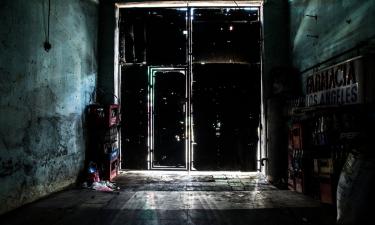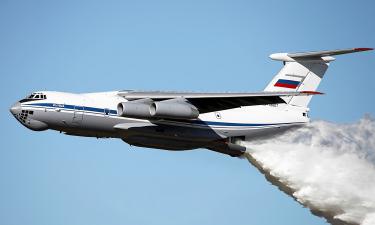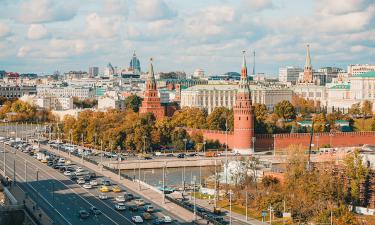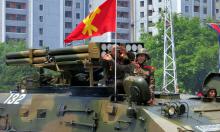On Thursday, December 27, Cabinet To Discuss Results Of Russia's Socio-economic Development In 2001
At its last sitting this year, due on Thursday, December 27, the cabinet will consider Russia's socio-economic performance in 2001, RIA Novosti was told at the Government Information Department. According to the Russian State Statistical Committee, in January through November the gross domestic product increased by 5 percent, the volume of industrial output by 5.1 percent, inflation stood at 16.7 percent /18.2 percent during the corresponding period last year/. This year the export of Russian products reduced by almost one billion dollars to 94.3 billion dollars. The import of foreign products considerably increased to 47.7 billion dollars /40 billion dollars over the corresponding period last year/. The growth of production in industry in January through November was 5.2 percent, in agriculture 6 percent, construction 9 percent, services 4.2 percent. The volume of retail trade increased by 10.5 percent and its turnover will constitute 3 trillion roubles (approximately 100 billion dollars), in preliminary estimate. The consumption of foods in Russia increased by 7.4 percent and non-foods by 13.4 percent. The pattern of retail trade changed: earlier, foods constituted more than a half, while this year non-foods account for 53.8 percent of the trade turnover volume. As regards retail prices, meat and poultry became 27.5 percent costlier; fish and seafoods 20.6 percent; bread and baked products, flour and pasta 10-12 percent. Services rose in price: housing and communal by 54 percent, passenger transport by 24.7 percent, cargo transport by 38.4 percent. Tariffs on services by natural monopolies increased by 46.3 percent, gas for industry by 18 percent and for population by 25 percent, electricity by 38 percent, railway transport by 54.8 percent. Average wages in Russia rose by 46.2 percent to 3,655 roubles in November. The growth in real wages is estimated at 20 percent. As of December 1, 2001, wage payment arrears constituted 34.8 billion roubles, or 3.1 billion roubles less than at the start of the year. In these arrears, the share of budgets of all levels is 13 percent. Throughout the year the government indexed pensions two times and now the average monthly pension in Russia is 1,134 roubles, or 1.4 times more than in the beginning of the year. The average size of pensions reached 95 percent of the pensioner's subsistence minimum. On an average during the year the subsistence minimum in Russia is 1,500 roubles, in the estimate of the Economic Development and Trade Ministry. The poverty level of the population is 27 percent, contrasted with 30.2 percent in 2000. The number of people employed in the economy is 65 million, or 100,000 more than a year ago. The number of unemployed, calculated according to the methodology of the International Labour Organisation, is 6.3 million; in January it was 7.1 million. However, the registered unemployed numbers constituted 1 million. Among the government's economic-policy goals for 2002, the Ministry for Economic Development and Trade singles out "a consistent rise in the standard of living of the population and the lowering of social inequality, ensurance of accessibility of social boons for all, including quality education, medical and social services, financial backing for the pensions system, continuation of the reform of the housing-communal economy".
Subscribe to Pravda.Ru Telegram channel, Facebook, RSS!




